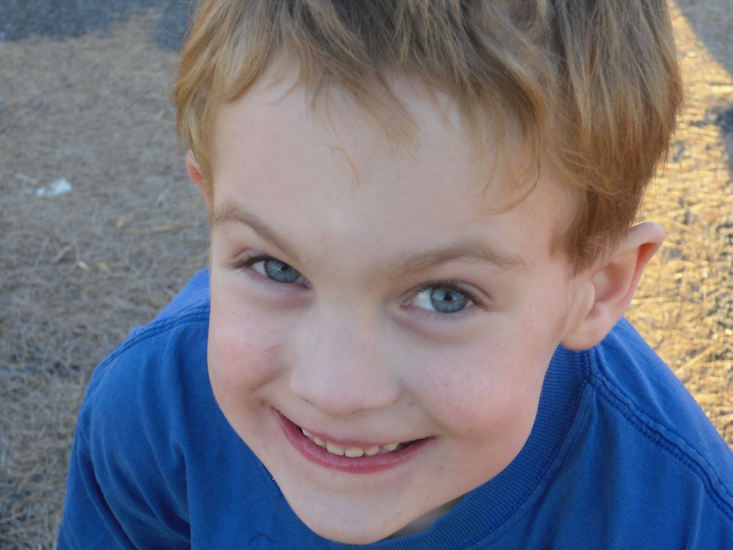“But he looks so normal!”
My son, J, shocks a lot of people when they hear his story. On the outside, he seems physically fine. He’s a bright kid, loves music and Legos, and plays soccer and baseball like many other kids his age.
Backstory: my son was born prematurely, and with a couple birth defects that require monitoring. He had his first surgery at 6 months of age to repair a tethered cord in his back, and for the most part he has caught up with his peers in gross motor skills, so no one sees any signs of his prior journey, save for his medical alert bracelet and a scar on his back. We live on what I like to call the bubble.
What’s the bubble? The bubble is that barrier between those families with kids without chronic health issues, and the families who live with the day-to-day journey of special needs.
While J appears “normal” and is in mainstream classes for school, he does have things kids without health problems wouldn’t have to deal with. He has asthma that required hospitalization, a lingering result of his prematurity. He gets severe pain in his legs and back during growth spurts. We don’t have to shuttle as much between therapies and appointments like those with more severe health issues, especially as he gets older, but he still has to go to a neurosurgeon at least once a year for follow-ups, and an ENT (ear, nose and throat doctor) a couple times a year. In other words, he’s almost healthy, except when he’s not.
This bubble is an awkward place to live; for one thing, we could hide the fact that he was born with health problems. This gets complicated when he has to miss school for tests and doctor’s appointments far from home, and when school forms now want to know every single thing that can be known about his birth and possible health issues. His teachers at school are great about communicating with us as long as we ask the right questions, but as he gets older, we can’t be sure he will have such understanding teachers. Because he does not have an IEP or 504 in his educational file (he doesn’t qualify), we could run into a hard time talking to teachers who might see us as wanting to “cater” to our child. We don’t want catering to; while we want him to be treated like any other kid his age, he does have issues we have to monitor until he stops growing, so it’s more of a “hey, this is what’s up with our kid and what we have to watch for, so let’s keep the lines of communication open.” Not everyone gets that.
There’s also the having to keep an eye on everything. For example, are the pains in his back and legs normal growing pains, or are they signs he needs an MRI to rule out re-tethering? It’s a lonely life on the bubble. On the one hand, you can’t relate to families who have no chronic health problems, because they don’t know what it’s like to have to wonder if something is normal or if it warrants a trip or call to the specialists; but on the other hand, you can’t entirely relate to families who have to cope with constant doctor’s appointments and therapy sessions, because you only have to deal with it a few times a year at most. You can try to join message boards for parents of kids with similar issues to yours, but because it’s a “mild” form, you often don’t fit in.
It’s an awkward dance. You let him try out for soccer, play the violin and play with other kids, but you can never quite pop the bubble because you have to worry about whether he will be able to keep doing what he loves if something is wrong as he grows. You have to hope that the surgeon did a good enough job to prevent recurrence, know more than the average parent ever needs to know about the spine and brain, and be grateful that your otherwise useless degree makes things easier to understand but gives you more to worry about.

The Mighty is asking the following: What’s one thing people might not know about your experience with disability, disease or mental illness, and what would you say to teach them? If you’d like to participate, please send a blog post to community@themighty.com. Please include a photo for the piece, a photo of yourself and 1-2 sentence bio. Check out our Submit a Story page for more about our submission guidelines.

